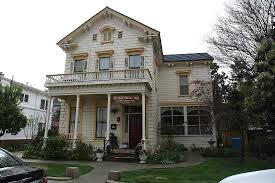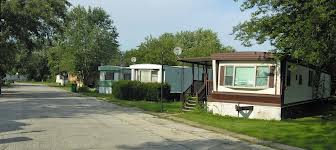 Blackburne & Sons, my private money commercial mortgage company, makes a lot of loans on small mobile home parks filled with older single wide trailers. Often these small coaches are not owned by the residents. Instead, these coaches are owned by the the park, and the park rents them out like apartment units.
Blackburne & Sons, my private money commercial mortgage company, makes a lot of loans on small mobile home parks filled with older single wide trailers. Often these small coaches are not owned by the residents. Instead, these coaches are owned by the the park, and the park rents them out like apartment units.
While they are decent collateral, there are some tricky legal issues associated with making loans on older trailer parks. Today you going to learn a lot about making mobile home park loans, perfecting liens, and bankruptcy law.
Okay, if you are going to make a loan on an apartment building, you simply record a Mortgage and Assignment of Rents against the property, and - voila - you're done. The same is true with a mobile home park, right? Maybe ... but maybe not.
Real property is land and that which is affixed to the land. Any property that is not real property is personal property - such as cars, boats, TV sets, stamp collections, and intangible rights, like the right of a famous football player to his own image. For example, you need to pay Peyton Manning if you want to use his likeness in a magazine advertisement. Years ago such personal property was known as chattel, and a Security Agreement secured by personal property was called a chattel mortgage.
You perfect (accent on the -fect) a lien against real property by recording a mortgage in the County Recorder's office. You usually perfect a lien on personal property by obtaining a Security Agreement against the collateral and filing a UCC-1 Financing Statement, usually with Secretary of State's office where the debtor either resides or was incorporated. I didn't know this last part until I looked it up this morning on Wikipedia. I always thought you filed it in the state where the property was located. It might depend on the state.

I'll tell you a scary story. Years ago I made a hard money loan on a small motel in the boonies. I recorded my mortgage with the County Recorder, and I filed my UCC-1 Financing Statement with the California Secretary of State's office on the motel's beds, furniture, icemakers, washing machines, dryers, etc. These items of personal property in a motel are known as the funiture, fixtures, and equipment or FF&E's.
The borrower defaulted, and then he declared Chapter 7. When I got the notice of the bankruptcy filing, I opened the file and looked for the Security Agreement. OMGoodness! There wasn't one! I had put the world and the bankruptcy trustee on notice that I had a lien on the FF&E's, but I had failed to actually obtain a Security Agreement, where the borrower agrees that I get to foreclose on the FF&E's if he fails to pay his loan. Fortunately the bankrutpcy trustee didn't catch it. Who would be dumb enough to file a UCC-1 but not obtain a Security Agreement? Uh ... me? Fortunately the loan paid off in full, and all ended well; but this explains why I had a heart attack at age 50. Ha-ha!
Anyway, back to mobile home parks with rental coaches. Are single wide trailers real property or personal property? Unless they are permanently affixed to a concrete foundation, like modular housing, trailers are personal property! After all, you can haul a trailer away in an afternoon.
Therefore, you cannot secure your commercial loan on rental coaches with simply a mortgage. You need to secure your loan like it was personal property; i.e., you need to obtain a Security Agreement and you need to file some sort of financing statement to put the world on notice that you have a lien against the coaches.
So do you file a UCC-1 Financing Statement to secure a chattel mortgage (personal property loan) against a trailer? No. Trailers are considered motor vehicles, and they are titled and licensed just like cars and trucks. Each state department of motor vehicles uses its own motor vehicle lien form, but they are all very similar to the one shown below.

Each trailer is a different motor vehicle, so this form must be filed for each coach. And don't forget that you still need a blanket Security Agreement (Chattel Mortgage), describing each of the coaches and their VIN numbers, signed by the borrower. If you fail to get one, you'll be just as foolish as me years ago, when I filed the UCC-1 but failed to get a Security Agreement on that motel. The Security Agreement grants the lender a security interest in the coaches. The state DMV form merely puts the world on notice that you have a lien and determines who has the first chattel mortgage and who has the second chattel mortgage. The first guy to file his state DMV form wins that race.
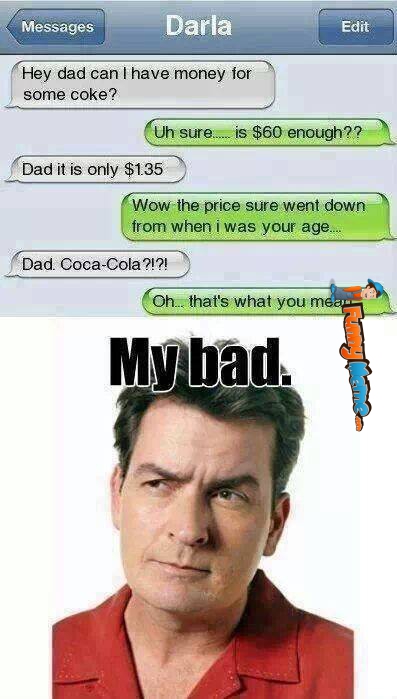
"Gee, George, why couldn't you just obtain a blanket Security Agreement on all of the coaches."
That would actually work, as long as the borrower didn't file bankruptcy. When the borrower signs the Security Agreement, he grants to the lender the right to seize and sell the chattel in order to repay the debt. As long as no other lender or bankruptcy trustee had a claim to the property, the lender would be golden.
But what if the borrower declares Chapter 11 Bankruptcy? In that case, the lender is still fine, even if the lender failed to file the state chattel lien forms with the DMV. Remember, the purpose of a Chapter 11 Bankruptcy is to give the debtor time to reorganize his finances and pay off his debts. The lender's lien is still valid, even without filing the state DMV form. It's only the priority of his lien - whether he has a first chattel mortgage or a second chattel mortgage - that is vulnerable.
But where the lender gets totally toasted is when the debtor files a Chapter 7 Bankruptcy. In a Chapter 7, all of the debtors assets become the property of the bankruptcy estate. The instant the debtor files a Chapter 7 Bankruptcy, the bankruptcy trustee instantly has a blanket lien against every asset owned by the debtor. If the lender hasn't perfected his lien on the coaches with the state DMV, he is truly, utterly, and completely toast. Now the bankruptcy trustee holds the first chattel mortgage position, and the mobile home trailer lender is in a second chattel mortgage position. In real life, this means the trailer lender will collect, at most, a few pennies on the dollar.
Morale of the story: When making loans on older trailer parks, be "absolutely positively" sure you perfect your chattel mortgage on each of the rental coaches!
-----------------------------------------------------------
We're working on a trailer park loan right now, and the rental coaches already have a personal property loan on them. It's not a mortgage, but rather just a business loan against the titles of all of the coaches owned by the park (16 out of the total of 20 coaches located in the park).
We called the state DMV office, and they told us to collect all 16 of the original coach titles and send them to the state DMV office, along with 16 completed Manual Title Applications (each asking the State of Kansas to add Blackburne & Sons to the new title as lien holder) and 16 filing fee checks for $11.50 each.
The existing lien holder on the 16 coach titles will send 16 similar Manual Title Application forms to the title company, along with a Demand for Payoff, sixteen checks for $10 each made payable to the State of Kansas, and instructions to the title company to send the forms and the money on to the State of Kansas, as soon as they send him his payoff check.
-----------------------------------------------------------
Important Weasel Words: The guy writing this article is an idiot. Do not rely on anything I've written. Instead, be sure to consult an attorney.
If you learned something today, would you kindly share this article using the Twitter, Facebook, Google+, or LinkedIn buttons above? It means a lot to me. Thanks! :-)
Need a commercial loan on an older trailer park? We love them.
Get a free, written directory of 2,000+ commercial real estate lenders, organized by state.
C-Loans can now help you place business loans - unsecured commercial loans, lines of credit, accounts receivable financing, factoring, equipment loans, equipment leases, inventory financing, and asset-backed lines of credit. Business loan brokerage is great because these deals often close in just 10 days!
Got an "A" quality commercial loan that is much too good for a private money lender? You can submit it to 750 banks in just four minutes using C-Loans.
Commercial mortgage brokerage is going to be a hot-hot field for the next few years because banks made very few commercial loans over the past seven years. Finally really learn this profession.







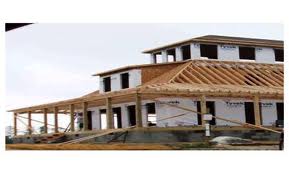 Okay, so your client buys a vacant office building from a bank that took the property back in foreclosure. In other words, the vacant office building was an
Okay, so your client buys a vacant office building from a bank that took the property back in foreclosure. In other words, the vacant office building was an 




 As I write this post, the Dow Jones Industrial Average is down 323 points on the day. Oil has fallen to less than $50 a barrel. The European Central Bank is considering a massive intervention in the European bond market - very much like our own Fed's
As I write this post, the Dow Jones Industrial Average is down 323 points on the day. Oil has fallen to less than $50 a barrel. The European Central Bank is considering a massive intervention in the European bond market - very much like our own Fed's 


 Commercial mortgage rates change daily, and there is no universal source - like Fannie Mae or Freddie Mac - where you can go to see exactly what
Commercial mortgage rates change daily, and there is no universal source - like Fannie Mae or Freddie Mac - where you can go to see exactly what 


 I almost ripped the head off of one of my commercial loan officers this week. I had sent him a superb commercial loan lead, and he replied, "Oh, I didn't really work that lead because the borrower was looking for bank-type rates." I was so flipping mad, I probably looked like Godzilla after a missile strike.
I almost ripped the head off of one of my commercial loan officers this week. I had sent him a superb commercial loan lead, and he replied, "Oh, I didn't really work that lead because the borrower was looking for bank-type rates." I was so flipping mad, I probably looked like Godzilla after a missile strike.


 Today's marketing lessons will also be helpful for
Today's marketing lessons will also be helpful for 

 Today I am going to share with you an easy way to quickly estimate the value of a commercial property. It's going to involve a tiny bit of math, but please don't freak out or tune out. You remember how to divide, right? Fourth grade math? You can handle it. And being able to quickly value commercial property is essential to both commercial brokerage and commercial mortgage banking.
Today I am going to share with you an easy way to quickly estimate the value of a commercial property. It's going to involve a tiny bit of math, but please don't freak out or tune out. You remember how to divide, right? Fourth grade math? You can handle it. And being able to quickly value commercial property is essential to both commercial brokerage and commercial mortgage banking.



 This morning I received a commercial loan solicitation flier (email) from an old friend of mine. My buddy, Paul, also owns a hard money commercial loan company, and I have realized that he is one of the wisest guru's in the commercial loan business.
This morning I received a commercial loan solicitation flier (email) from an old friend of mine. My buddy, Paul, also owns a hard money commercial loan company, and I have realized that he is one of the wisest guru's in the commercial loan business.
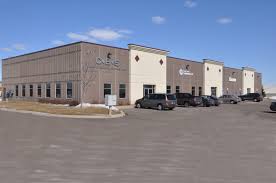 You are about to learn that the future of American manufacturing is so bright that you better put on shades.
You are about to learn that the future of American manufacturing is so bright that you better put on shades.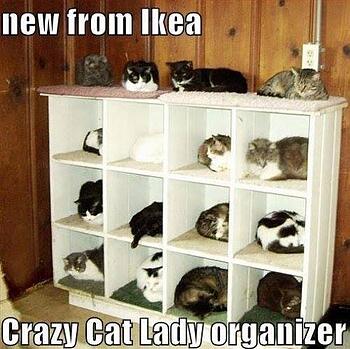
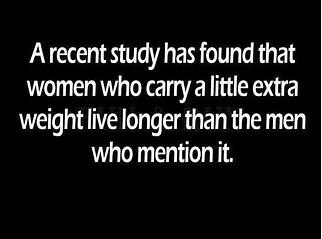

 In June
In June 

